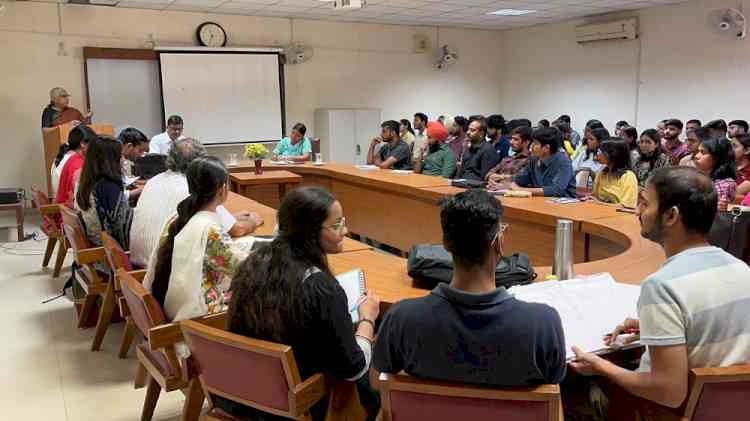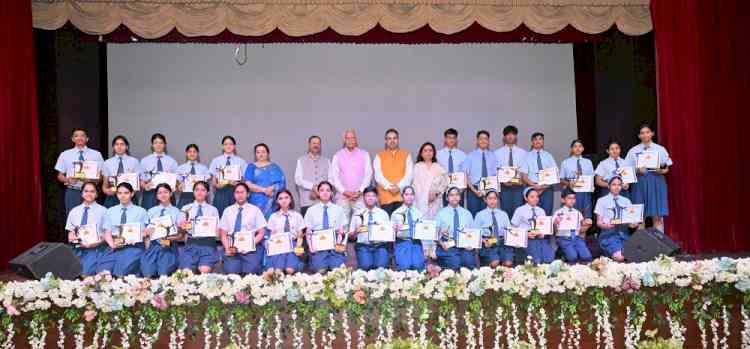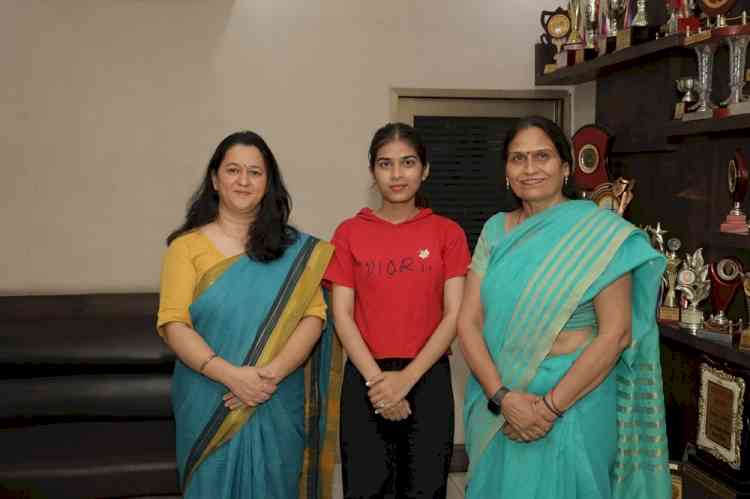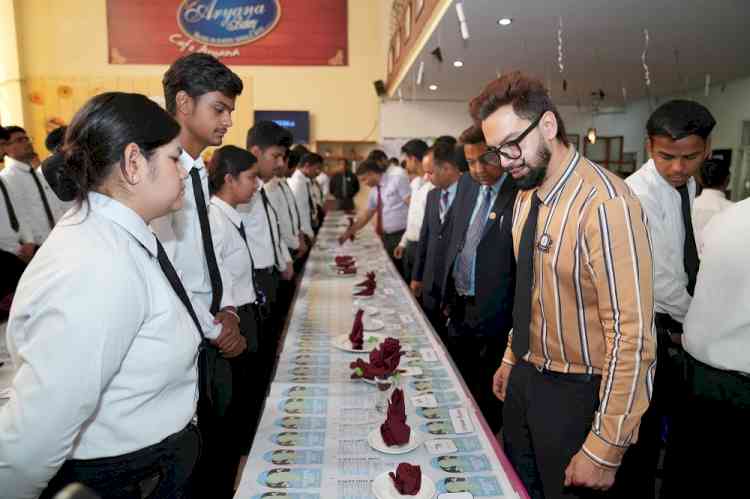PU organises special Lecture on “One Election One Nation - A Constitutional Perspective”
The Department of Public Administration, in collaboration with the Punjab and Chandigarh Regional Branch of the Indian Institute of Public Administration (IIPA), New Delhi today organised a special lecture on the topic "One Nation One Election: A Constitutional Perspective" today, in Seminar Room of the Department as a prelude to the IIPA Members’ Annual Conference on this theme.The event saw the participation of faculty members, students, and public administration professionals.

Chandigarh, October 14, 2024: The Department of Public Administration, in collaboration with the Punjab and Chandigarh Regional Branch of the Indian Institute of Public Administration (IIPA), New Delhi today organised a special lecture on the topic "One Nation One Election: A Constitutional Perspective" today, in Seminar Room of the Department as a prelude to the IIPA Members’ Annual Conference on this theme.The event saw the participation of faculty members, students, and public administration professionals.
The event began with a warm welcome by Prof Ramanjit K. Johal, Hony. Secretary of Punjab and Chandigarh Regional Branch of IIPA and Professor of the Department of Public Administration. In her address, she highlighted the importance of discussions on electoral reforms, especially in the context of governance and democracy.
Prof Ashutosh Kumar from the Department of Political Science, a distinguished expert in electoral systems provided a detailed overview of the One Nation, One Election proposal, which aims to synchronize elections across the country for the Lok Sabha and all State Assemblies. Prof. Kumar covered the historical context of simultaneous elections in India until 1967, the potential benefits, such as cost reduction, efficient governance, and the elimination of the "permanent election mode” and possible challenges like constitutional amendments, logistical considerations, and the impact on federalism.
In a diverse country like India with a federal set up, one election could lead to peripheralization of local issues, and a National constituency phenomenon could also dominate. Additionally, infrastructure like EVMs, VVPATs, administrative and security forces would be required at one time to conduct both state assembly and national parliamentary elections together.
Prof. Kumar analysed various models for initiating this process. However, legal and constitutional amendments related, challenges abound. He also discussed the role of the Election Commission of India and the legal framework required to implement such a large-scale reform.
In the interactive session that followed, students and faculty engaged in a lively discussion. Questions were raised on the practical implementation, the effect on regional parties, and how such reforms might reshape India's political landscape.
The event concluded with a vote of thanks by Dr. Bharati Garg, Chairperson of the Department, who flagged the efforts of the department and IIPA Punjab and Chandigarh Regional Branch for organizing the insightful session and acknowledged the participation of students and faculty members in making the event a success.


 City Air News
City Air News 










